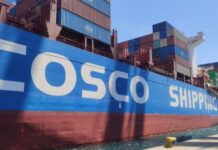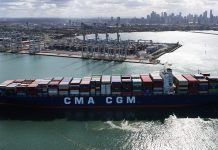
At the United Nations Global Compact (UNGC) High-Level “Ocean for the Future” meeting held at the UN headquarters in New York on 23 September, business leaders from sectors including shipping, ports, energy, and banking urged the International Maritime Organization (IMO) Member States to adopt a global regulatory framework to accelerate the maritime industry’s path toward achieving net-zero emissions by 2050.
Shipping CEOs, including MSC’s CEO Soren Toft, representing the largest liner companies, reiterated their call for the IMO to implement robust regulations that would reduce the price disparity between conventional and net-zero greenhouse gas (GHG) marine fuels, such as biofuels and synthetic LNG. Currently, these low-emission fuels are 2-5 times more expensive than traditional ones.
This appeal from leading shipping companies comes just before the IMO’s Marine Environmental Protection Committee (MEPC) convenes at the end of September, where discussions will focus on refining proposals for a global fuel standard and carbon/GHG pricing, including the logistics of how to charge, who will collect the fees, and which fuels will qualify as low-carbon or low-GHG.
MSC says it is fully committed to achieving net-zero decarbonization by 2050. As part of this commitment, the company has placed orders for more than 100 dual-fuel LNG container ships and is retrofitting over 300 vessels in its current fleet. While the technology for running today’s ships on net-zero fuels exists, the scalability of fuel production and infrastructure remains a barrier to widespread adoption, according to the Swiss/Italian ocean carrier.
MSC hopes the IMO MEPC will reach a consensus that balances ambition with practicality, sending a clear message that governments are prepared to meet the shipping industry’s commitment to transformation.
Delegates at the meeting also stressed the importance of fair, inclusive, and ambitious regulations. The human element is crucial in achieving net-zero goals, as seafarers will be responsible for safely operating ships running on new, cleaner fuels. Upskilling crews will therefore be essential to meeting the 2050 net-zero target.
In addition, the High-Level Ocean for the Future meeting further highlighted the need for a sustainable and resilient global economy, capable of adapting to disruptions. For decades, trade opportunities facilitated by liner shipping have empowered communities to access markets far beyond their shores.
Recent global disruptions have underscored the critical role of commercial shipping in world commerce. A well-designed regulatory framework for the maritime sector—incorporating future fuel requirements and economic mechanisms like carbon pricing—will be key to closing the gap between current and future industry standards, ultimately driving the adoption of net-zero fuels, according to MSC.





